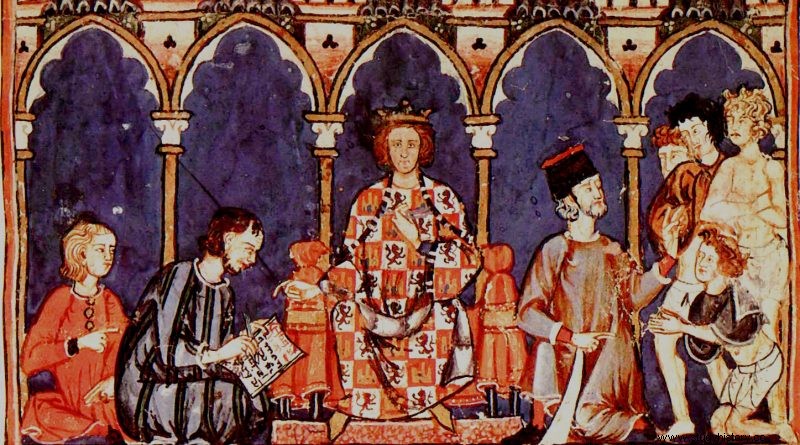To the figure of Alfonso X His fame as a cultured king has always been linked. Everyone knows that he not only promoted science and culture during his reign, but also actively participated in them as a troubadour and writer. Less known is by the common mortals that he kept numerous open fronts with the Church, the nobility, his closest advisers and even his own family. Events that led to the noble revolt of the year 1272 and that ended with the execution of his brother, the infante Fadrique.

The Castilian monarch had a clear political vision from the beginning of his reign. With clever but not at all subtle measures, he amassed absolute power across the board. For example, he tried to prevent the nobility and the Church from acquiring land and domains near urban centers, to control them as usual. On the contrary, he did grant privileges to the cities, to adhere them to his own cause. At the same time that he promoted these centralist policies, he tried to rise as Germanic Emperor in the so-called Date of the Empire (the attempt to be elected Emperor), another strategic move, lasting over time and very costly for the diminished Castilian coffers, which pointed in a clear direction:to strengthen his role as king, thanks to the imperial dignity, which, although not it gave him resolute legal powers, it did give him an intangible aura in the face of his subjects.
But it was undoubtedly the matter of the Fuero Real which finished filling the patience of the Church and the nobles. Formerly, the different towns of Castilla y León were governed by normative texts that granted a specific power to the nobility and the clergy, based on rights and privileges. Some of these charters had been drawn up in Visigothic times and did not convince a king who considered them problematic and obsolete. With the purpose of dominating the territories of the peninsula, the monarch ordered the composition of a made-to-measure jurisdiction, which would grant him spectacular political power. As a result of the loss of privileges, the ecclesiastical and noble sectors definitively exploded against the monarch. Nuño González de Lara , one of Alfonso's top advisers, was the instigator of the noble revolt against him. Taking advantage of the king's march to Murcia, he organized a meeting in Lerma (1271) together with other rich men, who were joined by the king's brother, the infante Fadrique. Rebellion that the wise king would finally put down.
All in all, we can summarize that Alfonso X not only championed culture throughout his reign, but also displayed an ambition beyond all doubt. In Las Partidas, a legal work, the monarch already attributes the main role, even above the all-powerful Church:«I am the head of the kingdom and Vicar of God on earth «. Something that did not sit well with Rome.
If you want to know more about Alfonso X, his time and the conspiracy of Nuño González de Lara you can read the historical novel A week of freedom , by Rubén Harrysson
See in mylibreto:A week of freedom
